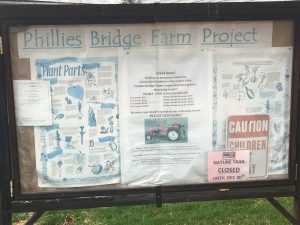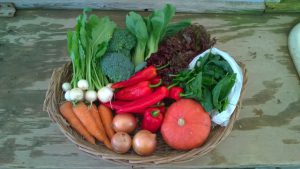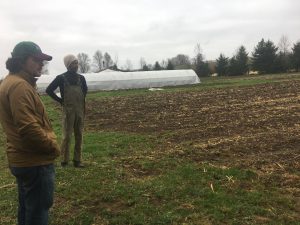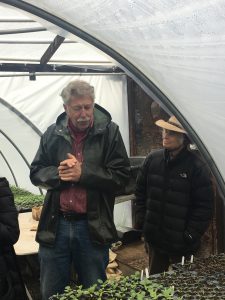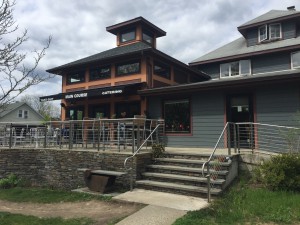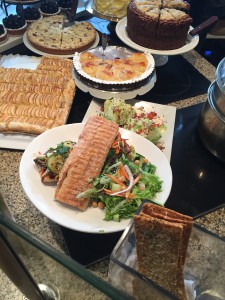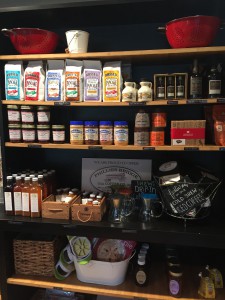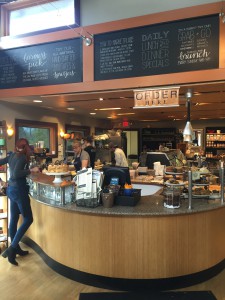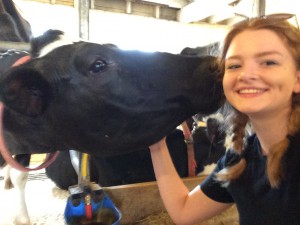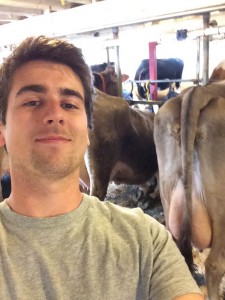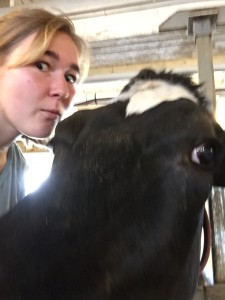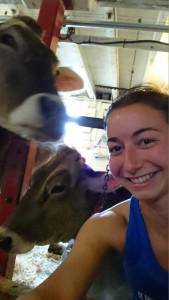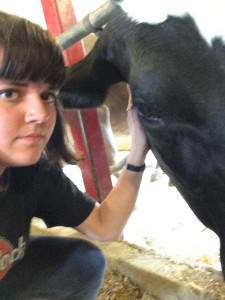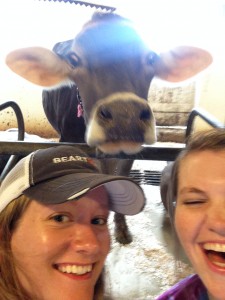Hello everyone! For my independent trip I visited McEnroe Farm in Millerton, NY.  Only a 45 minute drive away from Vassar, McEnroe farms is perhaps best known as the site that all of Vassar’s composting goes to be turned into delicious, rich, organic soil! But the farm also grows organic fruits, produce, herbs, seeds, and feed for the livestock they have. I wanted to visit McEnroe because I thought it’d be cool to learn about a farm fulfilling an interesting and really important job for the Hudson Valley network of farms — turning food waste, manure, and leaves into soil to be used by farmers and growers all over the region! Here’s what I learned.
Only a 45 minute drive away from Vassar, McEnroe farms is perhaps best known as the site that all of Vassar’s composting goes to be turned into delicious, rich, organic soil! But the farm also grows organic fruits, produce, herbs, seeds, and feed for the livestock they have. I wanted to visit McEnroe because I thought it’d be cool to learn about a farm fulfilling an interesting and really important job for the Hudson Valley network of farms — turning food waste, manure, and leaves into soil to be used by farmers and growers all over the region! Here’s what I learned.
First, here’s some history. McEnroe Farm is one of NY State’s oldest organic-certified farms. The farm was originally a small, family-run dairy operation, starting in 1953! Throughout the years the farm underwent a lot of transition, until in 2000 it began its now wildly successful composting program. Seven years later, the farm began a really cool education program to allow both kids and adults to come in, get their hands dirty, and learn about farming and the wonder that is composting! Today, the farm grows a wide variety of plants, raises cattle for beef, as well as poultry, pigs, and sheep.
Ok, let’s talk composting. I’ve always been a huge fan of composting myself, though I definitely could’ve been better at it while in college. My favorite thing about composting is that you can turn almost any — almost ANY — organic material into beautiful, dark, and rich soil ripe for growing healthy plants. Last year I tried my hand at vermicomposting – composting with worms – which was really fun, especially since I got the chance to order 500 words in the mail. In only one semester, my worms transformed my pretty meager and altogether unhealthy food scraps into like 7 inches of rich black soil! So.. you can imagine my excitement when I arrived at the McEnroe composting arena and saw THIS: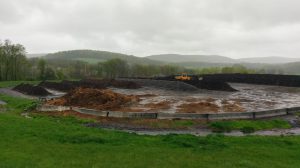 That’s right! We’re talking hundreds upon hundreds upon hundreds of pounds of beautiful black soil. McEnroe takes composting inputs from dozens of different farms, institutions, and organizations (as well as their own significant amount of organic waste) to create this stuff. They use the majority of it for their own growing purposes – they have multiple greenhouses and cold-frames, as well as many acres of growing fields – so they need a lot of soil. But for over two decades now, McEnroe has also sold their compost commercially to anything from landscaping businesses, parks, other farms, gardens, and green rooftops.
That’s right! We’re talking hundreds upon hundreds upon hundreds of pounds of beautiful black soil. McEnroe takes composting inputs from dozens of different farms, institutions, and organizations (as well as their own significant amount of organic waste) to create this stuff. They use the majority of it for their own growing purposes – they have multiple greenhouses and cold-frames, as well as many acres of growing fields – so they need a lot of soil. But for over two decades now, McEnroe has also sold their compost commercially to anything from landscaping businesses, parks, other farms, gardens, and green rooftops.
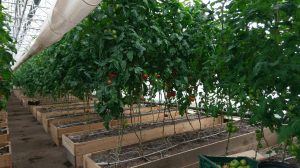
I found the McEnroe Farm model really interesting, especially as it compares to the other farms we visited this semester. McEnroe is a big farm – it encompasses over 1,110 acres of land – so it dwarfs most of the smaller-scale farms that we visited. This relatively larger scale definitely affords this farm some things that other, smaller farms can’t make work. McEnroe has a market open every weekday where they can sell their produce, whereas many of the smaller farms depend on dedicated customers through programs like a season-long CSA program to sustain their operations. Additionally, McEnroe has an on-site kitchen where you can buy value-added products either to eat at the farm or to take home with you. These are things that smaller-scale farms can’t really afford to do (at least from what I know from visiting a handful this semester), but the larger scope of McEnroe allows for some more expensive forms of diversifying their sales and getting new customers.
Visiting McEnroe was a really great experience, and I highly recommend it. I’d never visited a farm with such a large and dedicated composting operation, and it was really cool to see a farm not only growing food and livestock, but also making healthy soil for other producers in the region. For more information on McEnroe Farm, click here!
